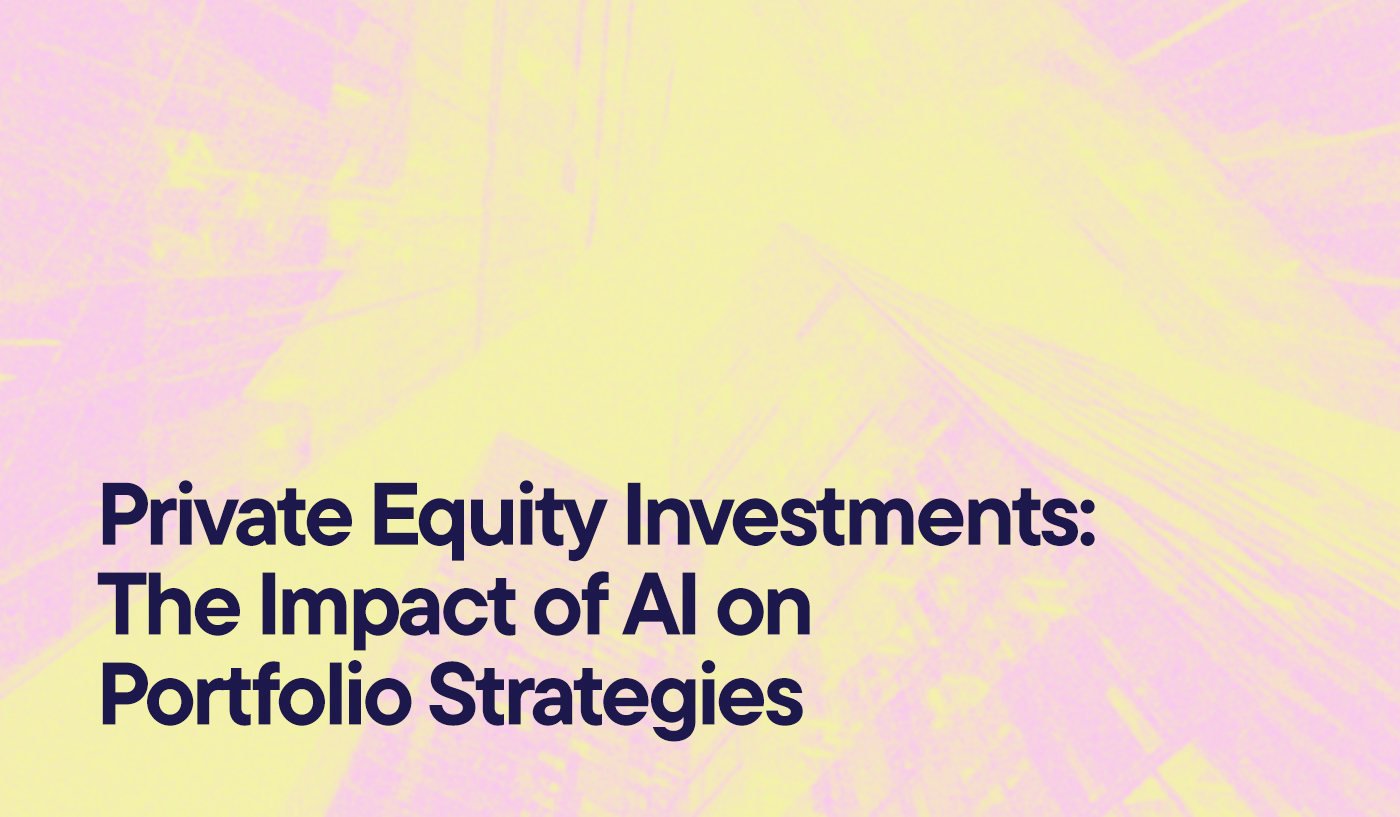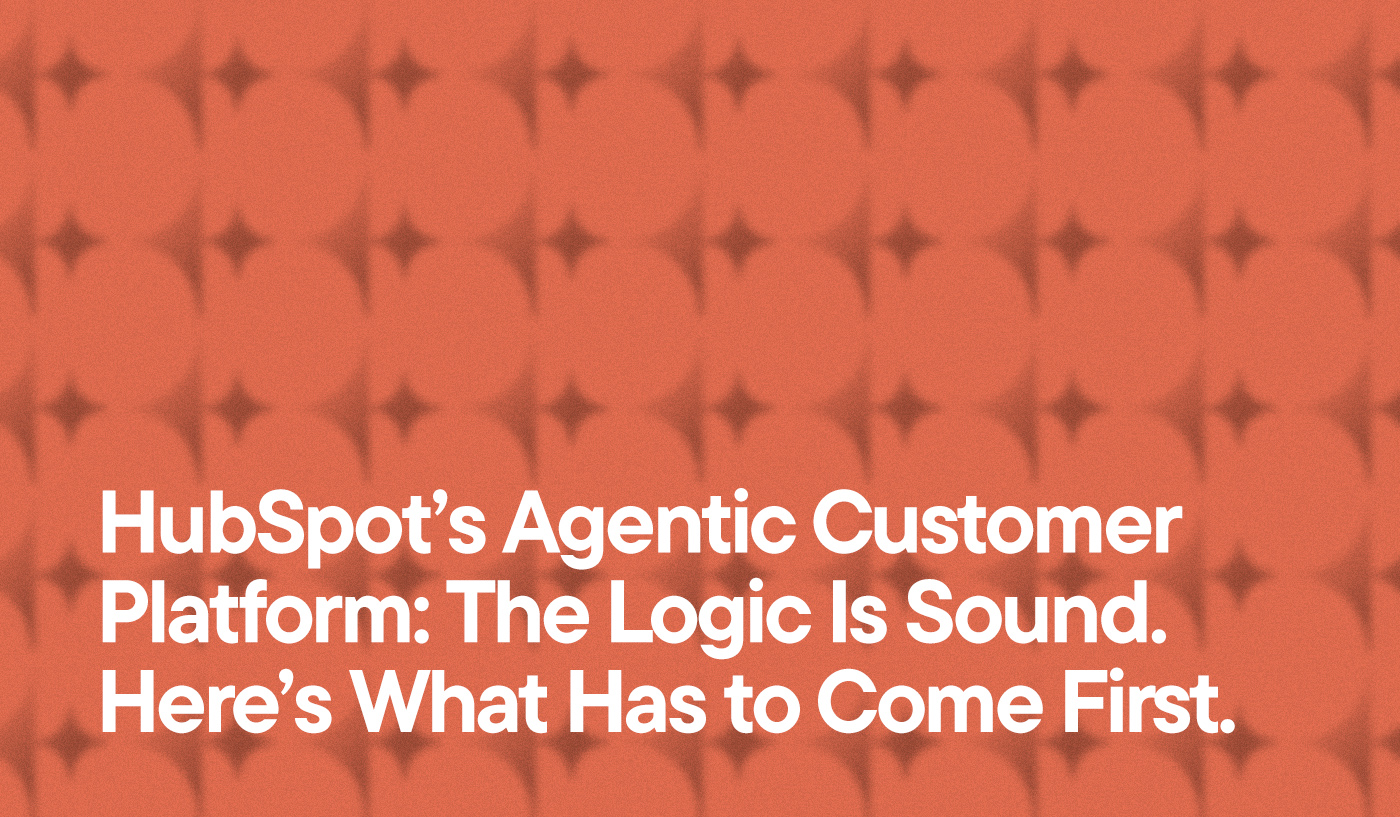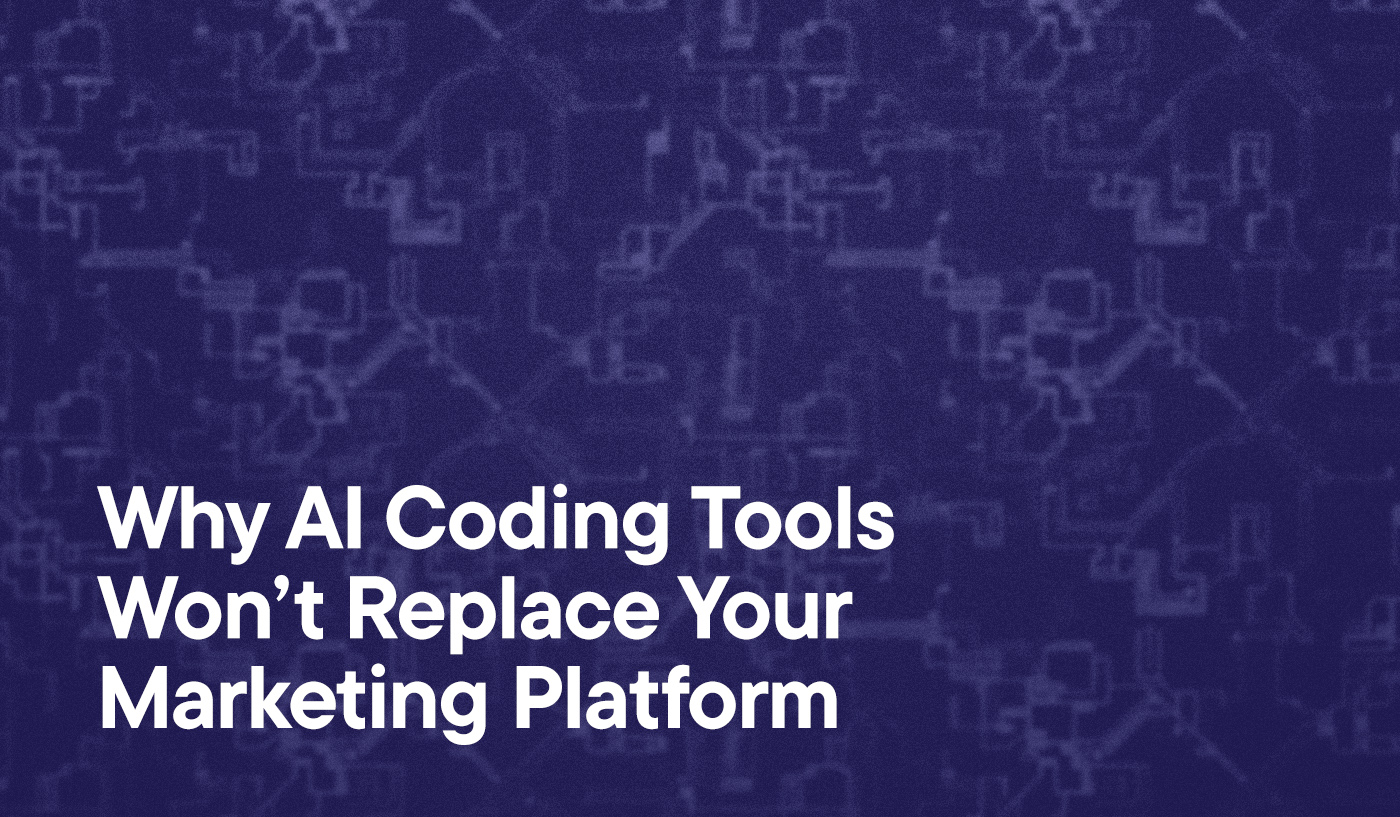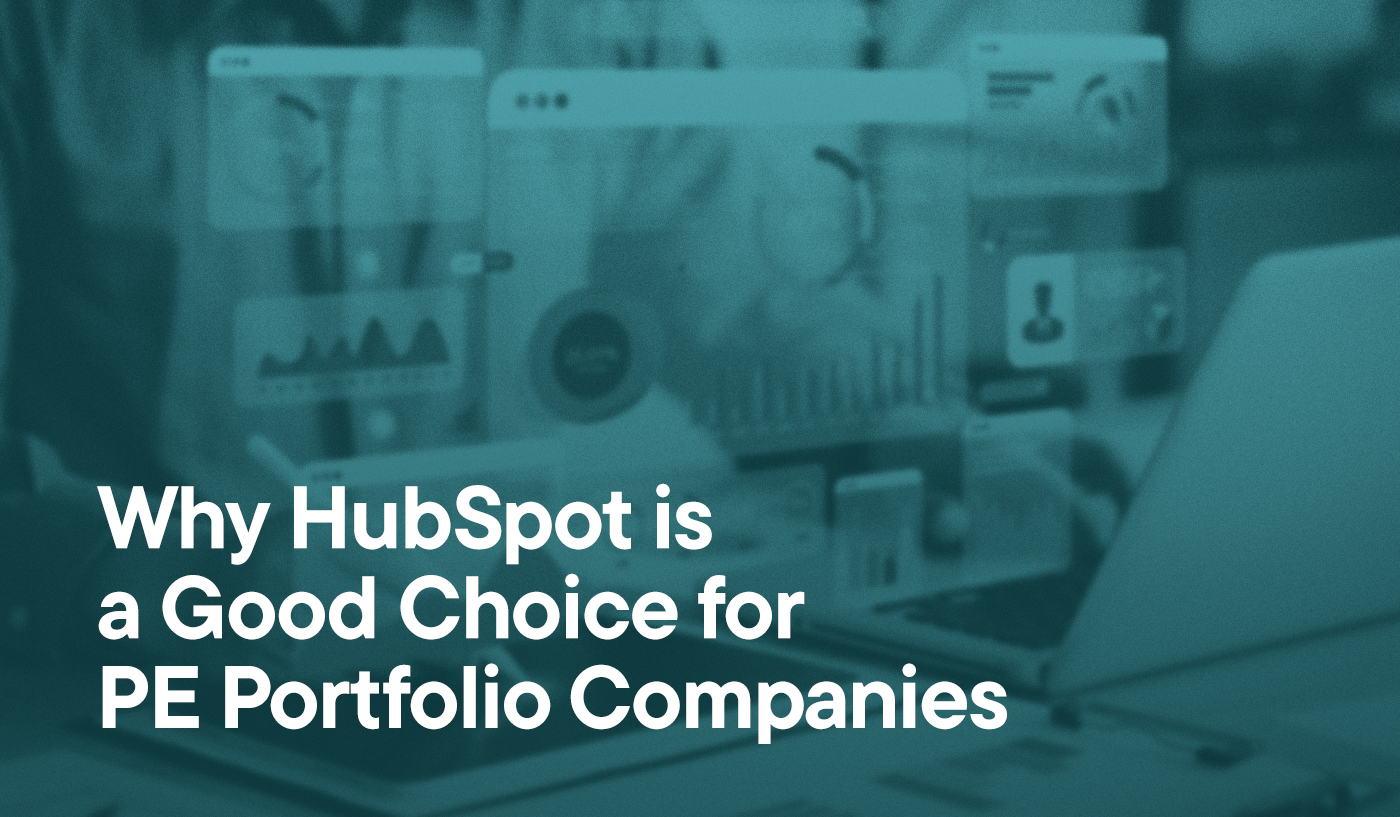Private equity (PE) firms are increasingly weaving artificial intelligence (AI) into various areas of their investment business.
What began as tentative experimentation has quickly evolved into widespread adoption一by late 2024, 82% of PE/VC firms were actively using AI, up from just 47% a year earlier.
AI has shifted from a “nice-to-have” tool to a critical component of competitive strategy, helping firms source better deals, create value in portfolio companies, and manage risks more efficiently.
Below, we explore how AI is influencing PE portfolio strategies in four core areas: Deal Sourcing & Investment Decision-Making, Portfolio Company Operational Improvements, Portfolio Monitoring & Risk Management and Valuation & Exit Timing.
Key Takeaways:
-
Deal Sourcing & Investment Decision-Making: PE firms are using AI to automate deal discovery, screen targets with predictive scoring, and speed up due diligence with tools that extract and analyze key data in hours—not weeks.
-
Portfolio Company Operational Improvements: AI is embedded across portfolio operations—from analytics and marketing to supply chain and HR—unlocking cost savings, efficiency gains, and revenue growth.
-
Portfolio Monitoring & Risk Management: Real-time AI tools monitor performance indicators and flag risks early, while predictive models simulate market disruptions and support proactive decision-making.
-
Valuation & Exit Timing: AI-enhanced models use live data to improve valuation accuracy, identify optimal exit windows, and tailor go-to-market strategies for stronger outcomes.
-
Hypha HubSpot Development for PE Firms: Hypha integrates HubSpot’s AI features into private equity workflows—automating deal tracking, investor communications, and reporting to help firms act faster and smarter.
1. Deal Sourcing & Investment Decision-Making
Private equity firms are turning to AI and machine learning to accelerate deal origination and sharpen investment decisions.
A 2024 survey from private equity software firm Allvue Systems found that data collection and deal evaluation were among the top AI use cases for general partners (GPs), each cited by about 60% of respondents.
Key applications include:
- Automated Discovery: Algorithms analyze data from millions of companies to maintain a robust deal pipeline, helping firms identify attractive targets early, even in crowded markets.
- Enhanced Screening & Analysis: Machine learning models quickly score potential investments based on criteria such as growth metrics, profitability, and market sentiment. Generative AI tools can summarize findings or even draft preliminary investment memos.
- Faster Due Diligence: AI-powered document review tools extract financials, legal clauses, and operational data in hours, highlighting risks and anomalies, such as revenue recognition issues or pending litigation, for humans to address. However, ensuring the quality and completeness of underlying data remains paramount for reliable AI outputs.
- Data-Driven Decision Support: AI systems can perform complex analyses, including market modeling and scenario simulations, to provide predictive insights rather than relying on historical data.
Here’s how one market leader is putting these AI capabilities to work in real-time:
Blackstone deploys AI for real-time intelligence to assess risks in potential acquisitions and forecast demand in specific industries, such as using proprietary data from its e-commerce warehouse portfolio to predict customer demand and pricing trends.
2. Portfolio Company Operational Improvements
Once a private equity deal closes, the priority turns to creating value within the portfolio company itself—and increasingly, AI is at the center of that effort.
AI is helping firms improve operations, reduce costs, and accelerate revenue growth, ultimately enhancing EBITDA and increasing exit multiples.
According to cloud consulting firm Virtasant, as of late 2024, nearly two-thirds of PE firms had started deploying AI across their portfolio companies, and over 75% planned to do so this year.
In short, AI has become a core part of portco operational playbooks. Yet, successfully scaling AI across diverse portfolio companies requires careful consideration of data infrastructure, organizational readiness, and the availability of specialized talent.
Some firms are forming dedicated AI or tech committees to promote adoption across holdings, while others are acquiring AI-forward companies to bring advanced capabilities and knowledge into the broader portfolio.
One industry projection estimates AI could contribute over $400 billion in operational value to U.S. private equity by 2030.
Accelerate Portfolio Value Creation
Looking for Marketing Leadership Without the Overhead?
Drive Growth With Our PE Portfolio Solutions arrow_forwardExamples of AI Driving Portfolio Impact:
- Data Analytics: AI-powered analytics platforms deliver real-time insights on pricing, sales performance, customer behavior, and margin trends. This improves decision-making and reduces reliance on lagging indicators. A recent report from Deloitte reported that 87% of businesses using AI in analytics saw measurable revenue increases or cost reductions.
- Marketing & Customer Engagement: Portfolio companies use AI to power personalized marketing, targeted promotions, and product recommendations. Tools also support scalable content creation, better segmentation, and dynamic pricing. AI-driven chatbots and recommendation engines enhance customer service while driving incremental revenue.
- Supply Chain & Operations: AI improves forecasting accuracy, inventory control, production scheduling, and logistics. Predictive analytics reduces disruptions, optimizes routing, and enables proactive maintenance. These improvements cut costs, reduce waste, and increase responsiveness throughout the value chain.
- Human Resources & Organizational Design: AI is also transforming HR functions. Firms use it to streamline hiring, evaluate workforce productivity, predict attrition risks, and design more efficient organizational structures. This helps ensure talent strategies align with portfolio growth plans.
3. Portfolio Monitoring & Risk Management
Beyond operations, AI is reshaping how PE firms monitor and manage risk across their portfolios.
AI tools now track real-time performance indicators—from weekly sales to web traffic to sensor data—and flag anomalies early.
Nearly 60% of PE managers use AI tools for early alerts, helping them detect issues such as falling margins or supply chain delays before they snowball.
AI enhances risk management by using predictive models to simulate market scenarios and flag vulnerabilities across a portfolio. PE firms use it to anticipate impacts from recessions, supply chain disruptions, or compliance risks, enabling more proactive planning before issues escalate.
4. Valuation & Exit Timing
AI is also transforming valuation and exit strategies.
Traditional valuation methods, which rely on quarterly financials and spreadsheet updates, are giving way to dynamic, real-time models.
These tools ingest high-frequency data—subscription trends, app usage, foot traffic, shipping volume, hiring activity, and even news and social media sentiment—to update assumptions in near-real time.
Deloitte predicts that by 2030, one in four PE firms will use AI-enhanced valuations, up from fewer than 10% in 2023. This enables more accurate pricing, faster decision making on secondary market or bolt-on transactions, and smarter exit timing.
Predictive analytics can also identify the optimal time to go to market, pinpoint the best potential buyers, and tailor messaging based on buyer behavior and industry trends. While data integrity and model risk remain concerns, leading firms are mitigating these with human oversight, continuous back-testing, and transparent audit trails.
Reimagining PE Success With AI
PE firms that integrate AI into core workflows are positioning themselves to outpace competitors, close better deals, optimize operations, and maximize portfolio value at every stage of the investment lifecycle.
As the technology matures, the gap between AI leaders and laggards will only grow wider.
Partner With Hypha for PE Success
As AI transforms private equity, firms need more than automation—they need intelligent infrastructure that aligns with their investment strategy.
Hypha specializes in HubSpot solutions built specifically for private equity, combining robust CRM workflows with the latest AI capabilities to drive smarter decisions across the investment lifecycle.
From predictive lead scoring and personalized investor communications to AI-assisted reporting and workflow automation, HubSpot’s AI suite enables PE firms to move faster, with greater precision and less manual effort.
Our AI-powered solutions help PE firms:
- Centralize deal tracking and pipeline management
- Automate investor relations and regulatory reporting
- Build real-time, portfolio-wide dashboards
- Use AI to generate insights, streamline operations, and accelerate exit readiness
With Hypha, you don’t just adopt AI—you implement it with purpose. Let us build the infrastructure that helps power your firm’s growth. Ready to turn AI into your competitive edge? Contact us today.




